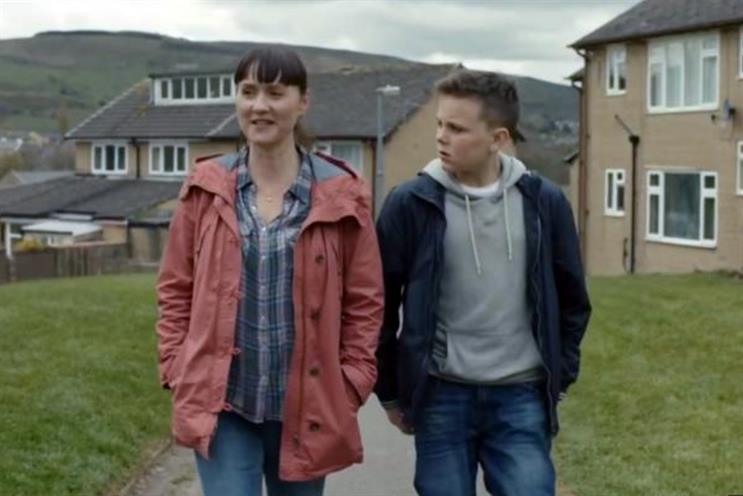McDonald’s doesn’t have it easy, while it may be the most visited fast food restaurant in the world – and let’s be honest, the majority of us have had one – it is demonised by numerous groups and communities.
From anti-meat groups (like vegans) to anti-capitalist groups, even local community group – in North London locals opposed McDonald’s putting an ad on a bridge across Green Lanes – it meets daily opposition.
How many brands have had a negative film made about them (Super Size Me)?
And when it bought into Pret-a-Manger there was an outcry. Love it or hate it, it seems we do both.
Against this backdrop creating an advert about a kid asking his mum about his late dad (pictured above), is playing with fire. But then to use a storyline that the only thing he and his dad had in common was liking McDonalds fillet-of-fish burger, "That was your dad’s favourite too," says the mum, it’s no surprise it backfired.
It’s almost sick. Poor judgement at best. What was the marketing team thinking, if thinking at all? As a parent I am appalled. As a marketer, I am shocked.
McDonald’s has always portrayed itself as a community brand, there for anyone and everyone, rich or poor. There for the family – as a parent, when your kids are young you can’t beat a McDonalds party. They're there late at night serving the night workers when others are asleep.
The brand does a lot of charity work, community projects, helps young people get into work and probably more for the environment than any other fast-food chain, but the negative propaganda around McDonald’s leaves many consumers denying they have eaten there, let alone taken the kids.
McDonald’s also faces some tough challenges. Consumer are getting healthy, some are cutting down on meat, a small minority becoming vegetarians or vegans.
Its ads take the Coke approach – show people as they are where the food is a shared experience.
I can understand how this strategy has taken them to this place – a story about a child who has lost his father, but it’s one step too far.
When Bisto did the first ad tackling single parents – dad used Bisto as part of the Sunday meal to make it special – it drew criticism.
Sainsbury’s First World War epic Christmas ad was highly praised but also drew criticism for "using the war to sell chocolate".
I can understand how this strategy has taken them to this place – a story about a child who has lost his father, but it’s one step too far.
Brands don’t have permission to cross certain lines because advertising, at the end of the day, is selling. And it’s not just the brands that suffer, the whole ad industry does as it fuels distrust.
In a highly connected world, more than ever brands are trying to find new ways to engage consumers, even if most people don’t want them in the social media space. But if you get it wrong you not only upset people but whole communities.
The trolls you can dismiss. They live in social la la land. The radicals you can dismiss. They act like weirdos so no one listens to them. The Daily Mail? You can also ignore, well, they complain about everything – just another here today, gone tomorrow story.
But a group of parents chatting outside the local school can kill you dead (word of mouth is way more influential than social).
From one group to another words and attitudes spread through various communities. We are social animals and very vulnerable to social norms, so if parents condemn McDonald’s for its "dead dad" strategy, the brand is dead.
This TV script may have been an attempt to reflect a real situation, to create a sensitive emotive advert by an ad agency and marketing department that appears too distant from the real customer world – you need to augment research with real face-to-face experiences.
Many brands are trying to be more than just a product or service, to create eco-systems bigger than their business. To create communities around the brand. Few have succeeded.
What McDonalds needs to do now is not just implement some quick PR wins, but to find a new way to get back in touch with its customers and their communities. Which requires thinking differently. We aren’t talking social media here (that’s not the real world) but back to the shop floor.
My concern is that McDonald’s has become such an institutionalised company, like so many big brands, it can’t really see the wood for the trees and connect anymore, seeing the world through the wrong end of a telescope of research.
Chris Arnold is founder of Creative Orchestra Advertising and consumer community marketing specialist CONNECT2. He is also the author of Ethical Marketing & the New Consumer.


